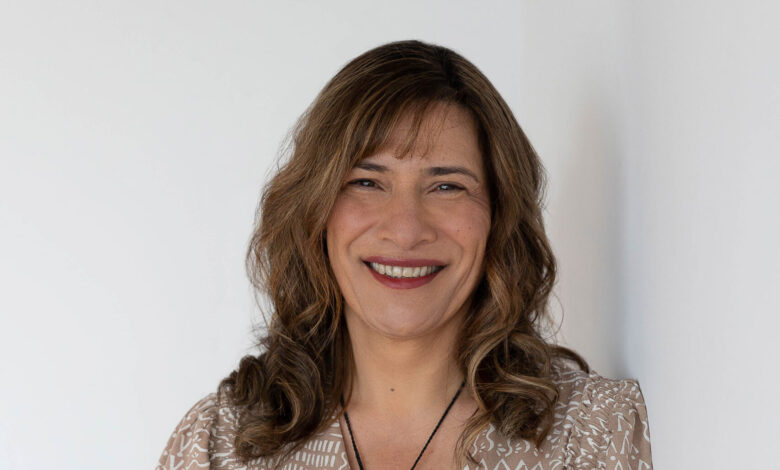Introducing the New President of the New Zealand Principals’ Federation: Leanne Otene
Leanne Otene has been a leader in the education community for many years. Now, she’s stepping into a new role as President of the NZPF.

Leanne Otene (Te Arawa), Principal of Manaia View School, is a member of the education community who needs little introduction. In the past few years, Otene has demonstrated unfaltering leadership for her school community and the wider education community through Covid and other hardships. She has built a reputation as an empathetic, informed, engaging and approachable member of the principals’ community, with her finger on the pulse of current issues in education. In 2021, Otene won the Outstanding Mentor Award and the Founders’ Principals Award for Leadership at the National Excellence in Teaching Awards (NEiTA). Now, Otene steps into a new chapter, becoming the first wahine Māori President of the New Zealand Principals’ Federation.
Otene brings almost three decades of experience as a Principal. In addition to her experience running schools, Otene has also been a mentor for many first-time principals, a long-time member of the NZPF Executive, and an outspoken advocate for the education sector. You can find her column for School News’ Principal Speaks here.
School News asked Leanne to share her thoughts on the challenges facing principals, and what she hopes to achieve in her term as President of NZPF.
How do you view your new role as President of the NZPF?
First and foremost, the purpose of NZPF is to advocate for principals. So my mantra is to listen, to learn, and to act.
From listening to [members] I will be able to learn how to help them. That might involve looking to research, looking at data, or talking to other people about their views, and talking to all our sector partners: The Ministry, NZEI, School Trustees Association, etc. Then we will formulate the position that NZPF will act on. That’s how I intend to operate as a president. I may be the voice, I may be the face, but I’m not alone.
And what issues do you see Principals facing?
There’s four areas I’m discussing at the moment.
The first is around leadership. Principals’ leadership—their own personal leadership and as a collective—is one of the top priorities. There needs to be the professional support for principals to grow. We also need to attend to principal hauora, making sure that principals are getting the support, tools and resources. If our principals aren’t well, if they’re struggling because they’re overloaded or overwhelmed, if they’re not getting the support they require, then they’re not going to be at their best to meet the needs of our ākonga.
The second issue is the curriculum. We’re in the midst of a refresh, and once again, we need to ensure that our principals are leading learning. To do that, they need to be given opportunities to get ahead. We must ensure that principals are comfortable and confident in ensuring mana whenua, localised stories, and Te Tiriti O Waitangi are incorporated into the curriculum refresh.
The third area is around our tamariki. While I’m an advocate for principals, I’m here because I want to be able to meet the needs of every ākonga, every learner across the country. The Federation represents 2500 schools, and we must be on top of what the needs are for our tamariki at every level. We want them to have all the tools in the toolbox no matter what path they take, whether that’s academic or trades. Inclusive education is important; we have so many diverse learners and we need to ensure that the supports are in place for those who have learning or behaviour needs. That’s a big part of the Federation’s work, looking at the high needs review.
Is our education system inclusive? Are we ensuring it’s equitable for rural, urban, Māori, non-Māori, immigrant ākonga?
The last area is advocating for what we know. Principals are part of that expert workforce and they know what works. We should be part of the driving policy in talking to our ministers, and I’m delighted at the appointment of Minister Jan Tinetti as Minister of Education. I’m also delighted that the Associate Minister is Kelvin Davis as Minister of Education for Māori. They’re both ex-principals, and they know what works in schools.
What does it mean to you to be the first wahine Māori President of NZPF?
I am extremely humbled to be the first wahine Māori president. At the same time, this is 2023; how could I possibly be the first? But anyway, I am. That comes with a heck of a lot of responsibility to make sure that I’ve broken the glass ceiling for any other Māori principal or teacher out there. I want them to see that this is perhaps something they could do in the future. I may be the first, but I definitely won’t be the last.
I’ve come into the presidency at a time when everybody is embracing the culture, Te Reo, Māoritanga. I’ve come into the presidency at a time where everybody is either advancing in that direction, or if they’re not keen on it, I can have the opportunity to talk that through with them and understand what we need to do to have everyone on board.
At the end of the day, I’m Māori, that’s how I view the world. And I want people to understand that being Māori is an asset, not a deficit.
I walk in both worlds; the experiences I’ve had are no different than any other New Zealander, but I also have a unique experience because I am Māori. Being able to walk in both worlds is important to me, and will hold me in good stead in this position. I also want to support those who are non-Māori to understand how they can enact the Treaty of Waitangi. That’s what I feel is expected of me as a wahine Māori president.
Yes, there is pressure, but I accept that. On the other side of the coin, I know I’m not alone. For example, Te Akatea Principals’ are totally supportive of my role. I can’t do it on my own, I’m only one woman. So, working with Te Akatea Principals’, working with the Māori achievement collective to be able to advance tikanga and matauranga Māori is the way I want to work.
So, what’s the first call to order?
Like I said, it’s a privilege to serve my profession, and that’s what I’m here to do: to serve. I will be doing my utmost to make sure that while I am sitting in this office, I am doing everything I possibly can.
I want to make a difference, and it’s all about relationships. I’ve got an awesome executive, and I’m going to use every relationship I’ve got to help me make sure that our kids have everything they need to succeed. In saying that, I’m going to be visiting schools because it’s a must given the last couple of weeks. My plan is that every time I go out of town, when I’m visiting, I’ve got a meeting etc, I’ll be stopping in and making very informal visits to schools.









